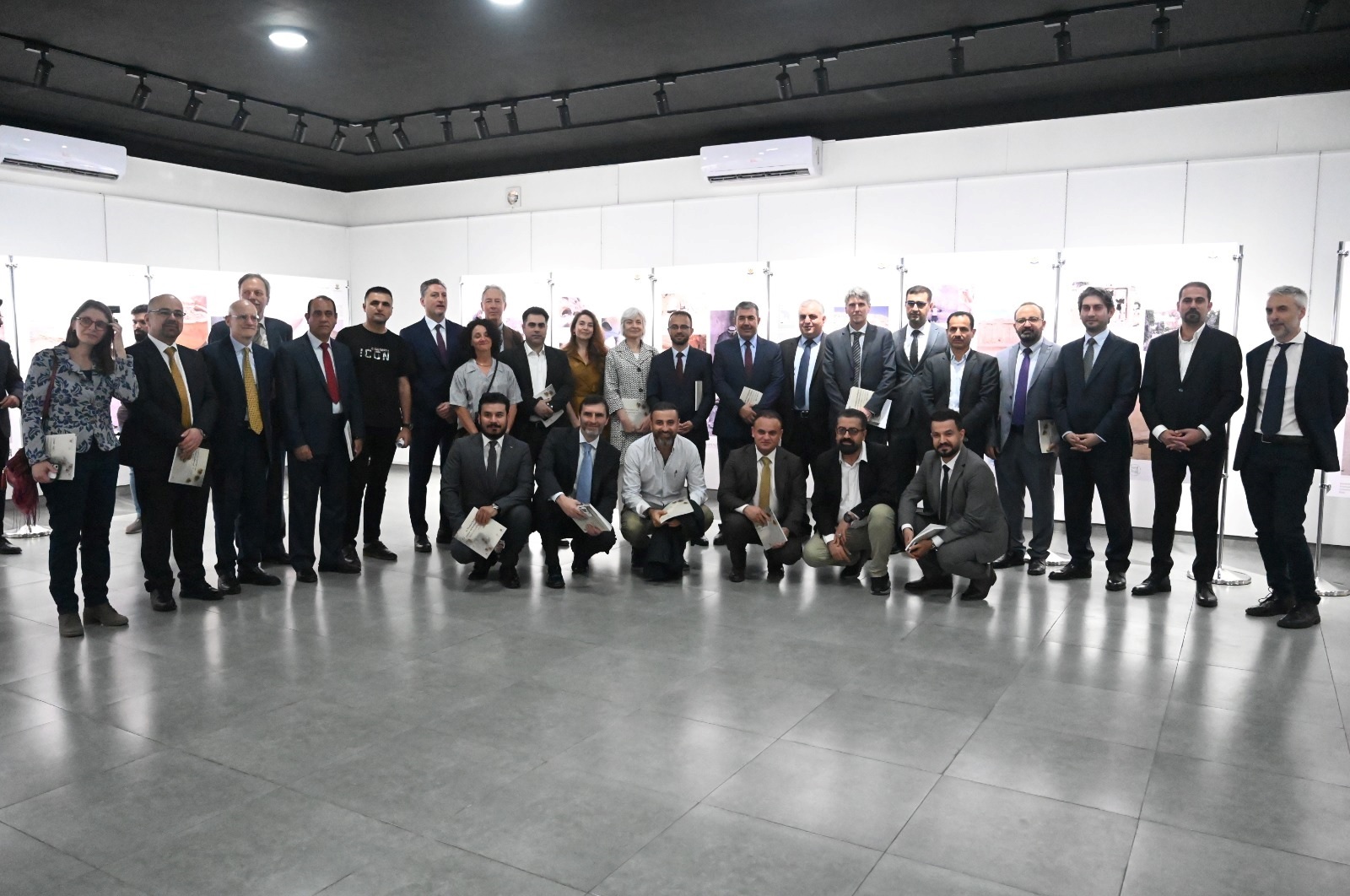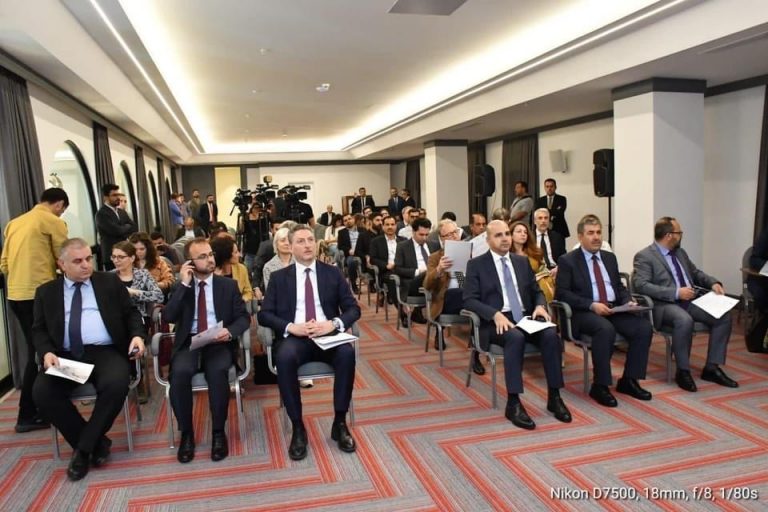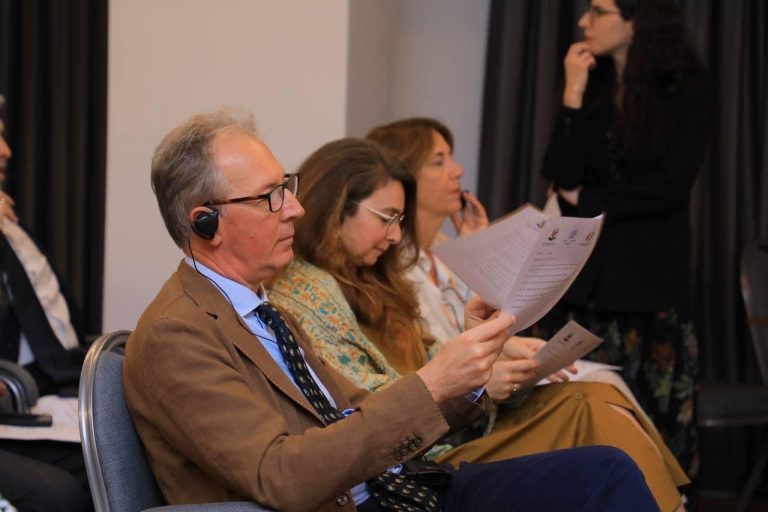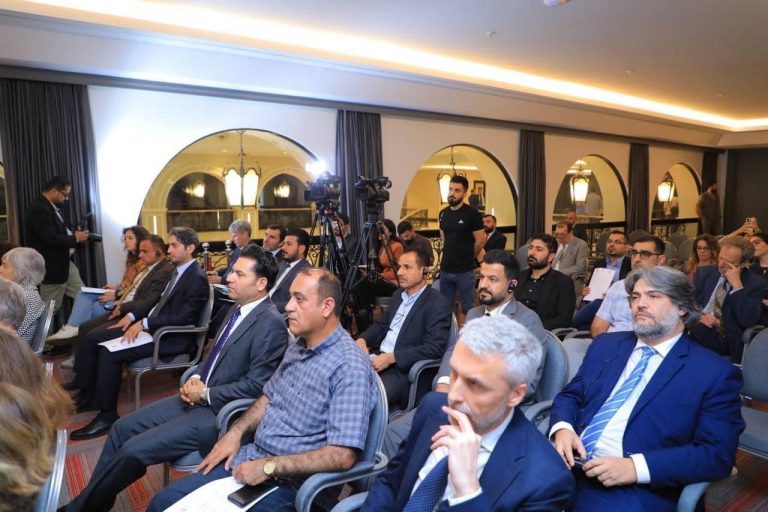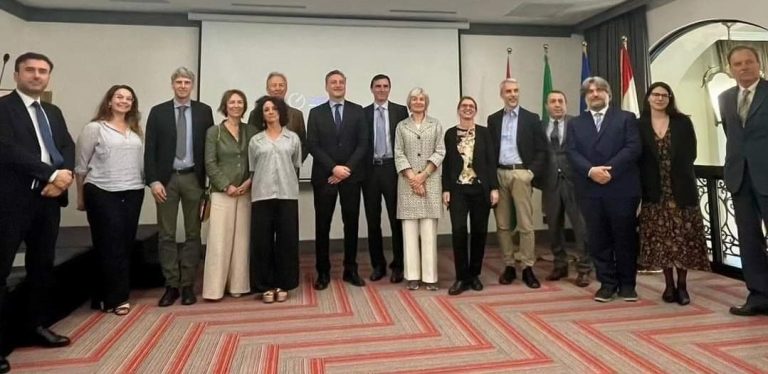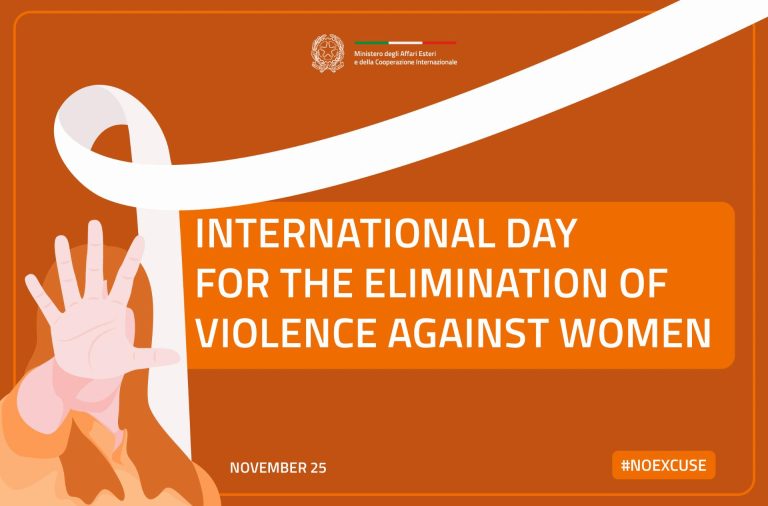Following the opening of the exhibition on Italian archaeological missions in Iraqi Kurdistan, which recorded an extraordinary participation of the public and media, a workshop was held on 29 and 30 April with the participation of all 11 Directors of the Italian missions and the Directorates of Antiquities and Heritage of the Kurdish Region.
After the greetings of the Consul Camerota, the Minister of Tourism and Municipalities Sasan Awmi and the Director General of Antiquities and Heritage Kaifi Ali, underlined the importance of the close cooperation in place and praised the excellence of Italian archaeologists. Ambassador Maurizio Greganti, having visited almost all of the missions in Iraq, and also standing out for his well-known passion for archaeology, then spoke from Baghdad. Greganti offered a wide-ranging excursus of the Italian presence, dated back two decades with the University La Sapienza which, with grants from Italian cooperation, expanded the Musueum of Sulaiymaniyah, enriched by discoveries found at Paikuli; to continue with the numerous projects of the University of Udine, including the one that led to the establishment of the Faida and Khinis Archaeological Park; passing through the activities of the University of Milan in the Erbil plain, up to the most recent projects in the Jebel Zawa of the Sapienza and in Tell Zeyd of the Ca’ Foscari of Venice, the research of the University of Palermo near the Mosul dam, the University of Pisa in Gird-i Matrab and on the Rania plain, to conclude with the ISMEO activities in Kalar and Sarqala.
From the General Directorate for Public and Cultural Diplomacy of MAECI, where a special office supports Italian archaeological missions in the world, Dr. Federico Di Giovanni confirmed the growing attention that the Farnesina dedicates to cultural diplomacy.
The two days seminar continued with the presentation of the projects by all the Directors of the Italian missions and with interventions of the Directorates of Antiquities, highlighting the presence of our missions in all the provinces of the Region. On the sidelines, some universities have signed agreements to extend their excavation and research licenses, issued by the Kurdish authorities.
Consul Camerota closed the workshop by expressing satisfaction for the success of the whole event, which repaid the considerable organizational effort made by the Consulate and hoped for future similar opportunities of exchange between scholars, who encourage cooperation at various levels and contribute to strengthening the already excellent relations of Italy with Iraqi Kurdistan.
For further information on the Italian archaeological missions in Iraqi Kurdistan, in addition to the publication of an illustrative catalogue, a specific website is active: www.archeokri.it




